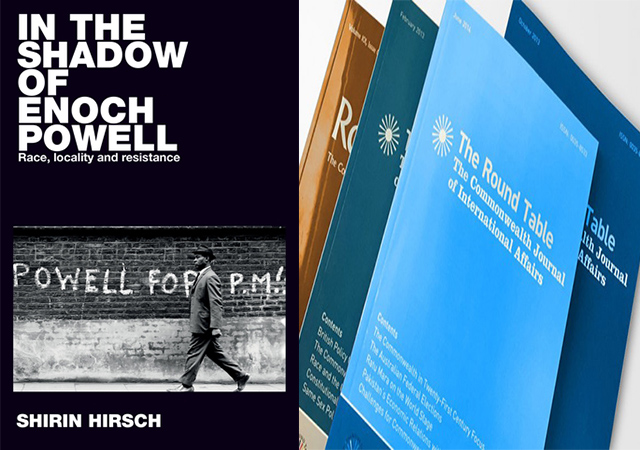
This small brave sane book should be required reading for every adult in Brexit Britain. It takes Enoch Powell’s speech to a coterie of about 85 Tories on 20 April 1968 as a generative moment for a discourse by which citizens became ‘immigrants’. It situates Powell’s ‘Rivers of Blood’ speech within a national historical context of colonialism and racism and identifies how this involved the imagined voices of ‘ordinary’ white constituents. If any mere text were able to head off the possibility of a blue plaque ever being dedicated in Wolverhampton to the memory of Enoch Powell, this book is surely that text.
Hirsch patiently deploys the counter-evidence to Powell’s description of Wolverhampton’s social fabric and the town’s everyday resistance to racism. Her account of the wider international context and of America’s civil rights struggle, in particular, the Malcolm X era – he visited the Black Country town of Smethwick only nine days before he was assassinated in New York – and its effect on Powell’s outlook is illuminating.
She is especially good on Wolverhampton’s industrial history and links to empire, the globalization of its day: ‘The early history of Wolverhampton was integrated into the international slave trade in ways still uncomfortable to acknowledge (…) The foundries and workshops of Wolverhampton produced chains, fetters, collars, padlocks and manacles, all of which would be taken to the ports of Liverpool and Bristol and used on the slave ships from Africa and in the British plantations during slavery in the Caribbean and North America. Such was the extent of this trade that Henry Waldram, a Wolverhampton ironmaker, advertised his specialism in the directory of 1770 as “Negro Collar and Handcuff Maker’’’ (p. 31).
Someone has said that history repeats itself, manifesting first as tragedy and then as farce. It is difficult to shake off the feeling that this may be true when Hirsh’s account of Powell’s career is set against those of politicians prominent on the political stage of Britain at the time of writing this review in 2019. ‘The secretary of the Wolverhampton Communist Party, George Barnsby, (…) declared a week after the speech [that] “The man yearns to be Prime Minister and thinks he can achieve his aim by winning support from the most prejudiced sections of the population”’ (p.62).
Martin Mulligan is a member of the Round Table Editorial Board.
In The Shadow of Enoch Powell: Race, Locality and Resistance by Shirin Hirsch is published by Manchester University Press, 2018.



